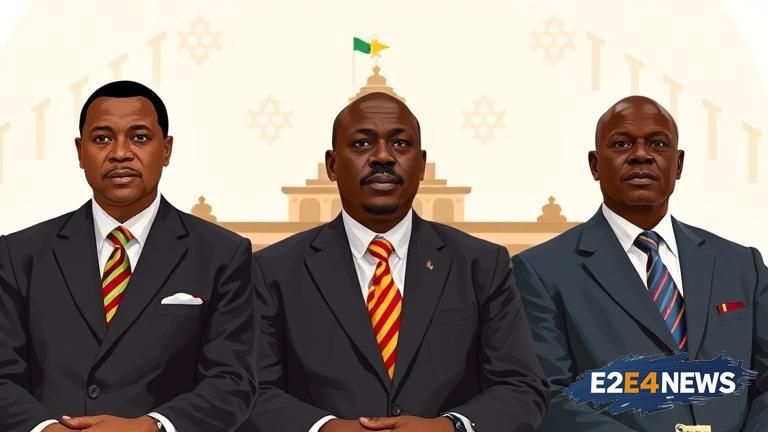In a move that could have significant implications for Ghana’s political landscape, four Members of Parliament (MPs) are advocating for a constitutional amendment to permit individuals with dual citizenship to hold public office. The proposed amendment has sparked intense debate among lawmakers, citizens, and stakeholders, with some arguing that it could lead to increased representation and diversity in government, while others express concerns about potential conflicts of interest and loyalty. The MPs, who have not been named, believe that the current constitutional provision, which bars dual citizens from holding public office, is outdated and discriminatory. They argue that many Ghanaians have acquired dual citizenship due to various reasons such as marriage, education, or work, and that this should not disqualify them from participating in the country’s political process. The proposed amendment would require a thorough review of the constitution, which has been in effect since 1992. The MPs have begun consultations with various stakeholders, including civil society organizations, traditional leaders, and the general public, to gather support for their proposal. The issue of dual citizenship has been a contentious one in Ghana, with some arguing that it undermines national identity and loyalty. However, proponents of the amendment argue that it would allow Ghana to tap into the skills and expertise of its diaspora community, who could bring valuable experience and knowledge to the country’s development. The amendment would also bring Ghana in line with other countries that permit dual citizenship, such as the United States, Canada, and Australia. The MPs have emphasized that the proposed amendment is not intended to undermine the country’s sovereignty or national identity, but rather to promote inclusivity and diversity in government. They have also assured that the amendment would include safeguards to prevent conflicts of interest and ensure that dual citizens who hold public office prioritize the interests of Ghana. The proposal has been met with mixed reactions from the public, with some expressing support for the amendment, while others have raised concerns about its potential implications. Some have argued that the amendment could lead to a brain drain, as talented Ghanaians with dual citizenship may choose to pursue opportunities in other countries. Others have expressed concerns about the potential for foreign influence in Ghana’s politics, particularly if dual citizens with allegiance to other countries are allowed to hold public office. Despite these concerns, the MPs remain committed to their proposal, arguing that it would promote Ghana’s development and allow the country to benefit from the skills and expertise of its diaspora community. The proposed amendment is expected to be debated in Parliament in the coming months, where it will undergo rigorous scrutiny and analysis. If passed, the amendment would require a national referendum to be approved, which would give Ghanaians the opportunity to have their say on the matter. The outcome of the proposal is uncertain, but one thing is clear: the debate over dual citizenship and public office has sparked a national conversation about identity, loyalty, and the role of citizenship in Ghana’s development. As the country navigates this complex issue, it is essential to consider the potential implications of the proposed amendment and to ensure that any changes to the constitution are in the best interests of Ghana and its people. The MPs’ proposal has also highlighted the need for a more nuanced understanding of citizenship and national identity, particularly in the context of globalization and migration. Ultimately, the decision to allow dual citizens to hold public office will depend on the will of the Ghanaian people, who will have the final say in the national referendum. The proposed amendment has significant implications for Ghana’s political landscape, and its outcome will be closely watched by citizens, stakeholders, and the international community.





